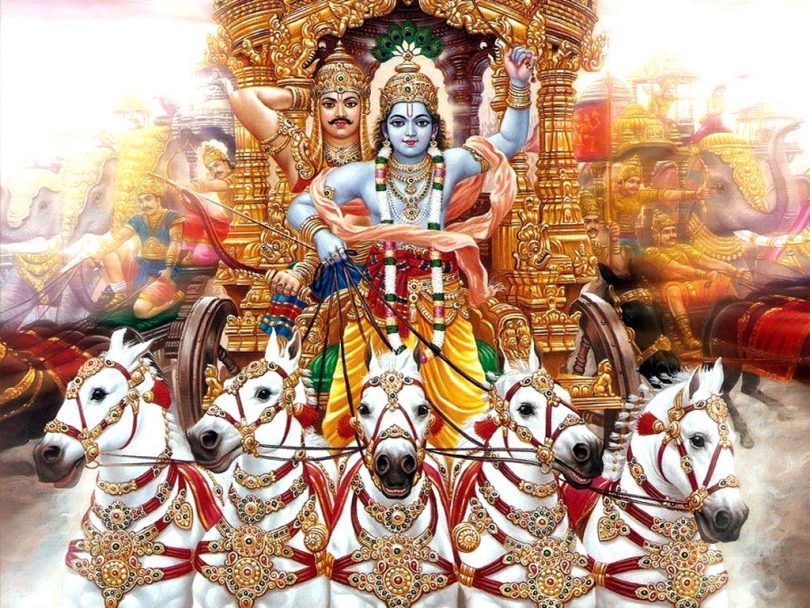Question: I have a question related to the chariot analogy of the living entity. In the Katha Upanishad a description is given of a chariot drawn by 5 horses representing the senses, the mind the reins, the charioteer the intelligence and the passenger the soul.
My understanding is that as long as the soul/passenger is asleep, the living entity is conditioned, as he has no proper direction and undergoes repeated “birth and death” in the material world.
1: When the soul/passenger is awake and directs the intelligence and the senses, since one is no longer acting on the urge of the unbridled senses, the mind and the intelligence, is one in a liberated state?
Answer by Romapada Swami :
Your description and understanding of the analogy is correct, although the soul is not specifically compared to the states of being asleep and awake.
When the self directs the intelligence according to spiritual instructions, the Upanishad states that one can reach the destination, Vishnu, who is paramam padam, the supreme goal of life (Katha Upanishad 1.3.9*). Thus, in this analogy, the liberated state can be understood as the destination and the self is on the path towards liberation.
Srila Prabhupada comments on this verse: One may drive well, or else one may drive whimsically, in which case it is quite possible that he may have an accident and fall into a ditch. In other words, if one takes directions from the experienced spiritual master one can go back home, back to Godhead. (SB 7.15.41 purport)
2: Why is the Super-soul not mentioned in this analogy as the second passenger on the chariot?
Answer by Romapada Swami :
Katha Upanishad does mention the Super soul, although not in this particular analogy, but both in preceding and following sections. Clear distinction is made between the soul, Super soul and the body in this Upanishad. The Super soul is specifically described as residing in the heart along with the atomic soul. (Katha Upanishad 1.2.20 quoted in purport of Bhagavad-gita 2.20), Katha Upanishad 2.2.13 quoted in Bhagavad-gita 2.12 and Bhagavad-gita 15.17)
* The Kathopanisad, 1.3.9, states:
vijnana-sarathir yas tu
manah pragrahavan narah
so’dhvanah param apnoti
tad visnoh paramam padam
“One who possesses vijnana, realization of the Lord, as his charioteer, and who thus maintains a steady control of the mind, which is like the reins that control the horses of the bodily senses, crosses this material reality and attains the supreme abode of Sri Visnu, who is the omnipresent Supersoul known as Vasudeva.”







